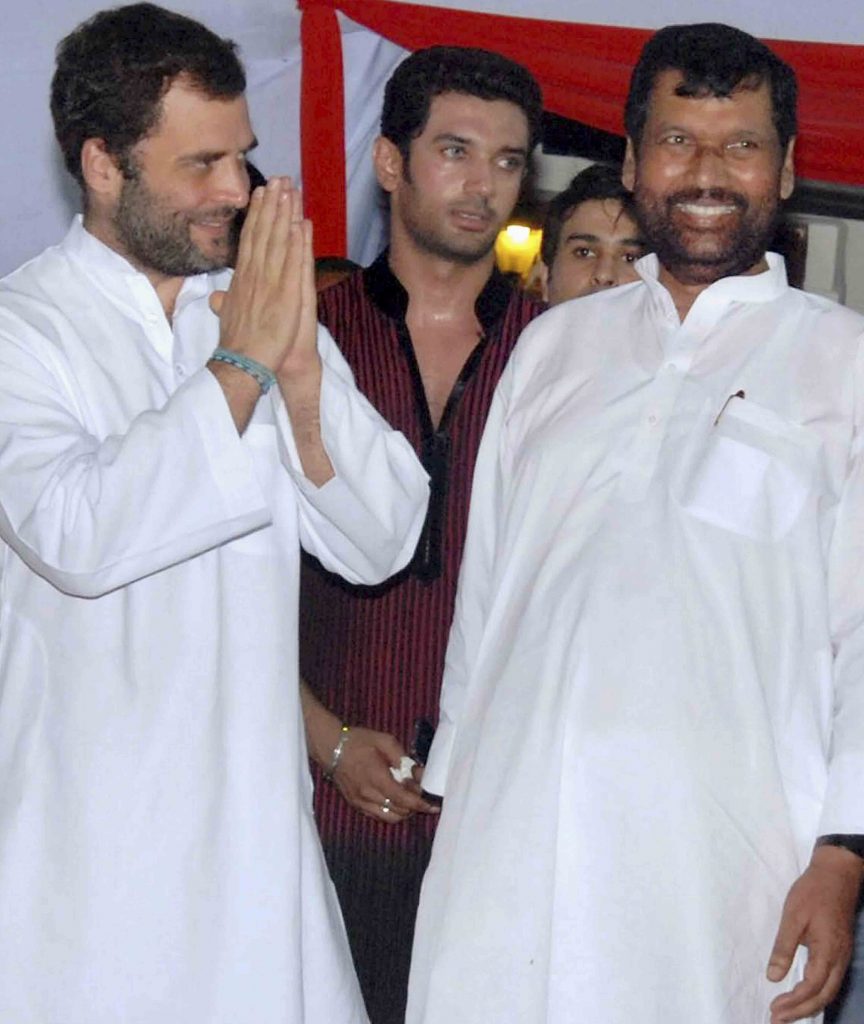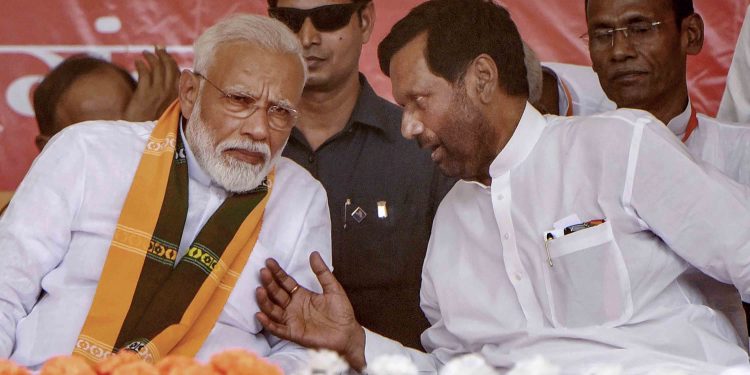New Delhi: In politics people you support may forget you sometimes. However, if you attack a group, then they will never forget and forgive you, Ram Vilas Paswan once said this in an informal get-together. Ram Vilas Paswan made the comment when someone prodded him on the secret of goodwill and warm equations. The political leader, it must be said enjoyed good relations with all parties of contrasting ideological hues and communities.
This kernel of Paswan’s political philosophy may well explain his durability as a successful politician. He might not have ever been a king but he was a true ‘kingmaker’, as he often described himself. Paswan outlasted many kings in his illustrious career of more than five decades.
The veteran Dalit leader died Thursday at the age of 74 at a private hospital here. He had recently undergone a heart operation.
Paswan believed in making friends and building bridges. If he did once in a while make angry comments against rivals, then it was mostly guided by the demands of realpolitik and quickly forgotten. Pawan took pride in describing himself as a cementing force among, at times, warring allies.
Paswan was elected for the first time as an MLA in 1969 as a member of an anti-Congress front. He rose through the ranks of various socialist parties, which changed forms with a periodic interval, and became a leading Dalit face.
Born in Khagaria in Bihar in 1946, Paswan was elected to Lok Sabha eight times and was currently a Rajya Sabha member.
KC Tyagi of the Janatal Dal (United), who was with Paswan in the Charan Singh-led Lok Dal for years described him as a socialist colleague of over 45 years. He said Paswan played a key role in consolidating Dalits in north India and remained their voice.

Paswan’s death brings the curtains downs on yet another leading socialist politician associated with the anti-Emergency movement of 1975-77. He would fondly recite a few poems, some of which he wrote himself, imbued with political and social messages.
Paswan was one of the key ministers in the VP Singh government, which came to power in 1989. He pushed for implementing the Mandal Commission report, which recommended reservation for other backward classes. He upended the pivot of politics, especially in Hindi-speaking states like Bihar and Uttar Pradesh forever.
It is also a tribute to his worth as a politician and his warm acceptance across parties as contrasting in their ideologies as the Congress and the BJP. He was courted by arch rivals like Atal Bihari Vajpayee and Sonia Gandhi. He served as a valuable minister in the BJP-led NDA as well as the Congress-led UPA governments.
He quit the Vajpayee government due to his growing differences with the saffron party. Then he had also attacked the then Gujarat Chief Minister Narendra Modi. However, when he joined hands with the Modi-led BJP in 2014, he soon became a trusted colleague of the prime minister, especially on Dalit issues.
In the first half of his political life, Paswan was a sharp critic of the RSS. Though he mellowed down later, Paswan continued to maintain that the Hindutva organisation needed to change its image among Dalits. He was, however, also an enthusiastic supporter of Modi’s works for Dalits and took on the government’s critics over the issue.
Paswan was at times mocked as ‘mausam vaigyanik’ (weatherman) for his skill to navigate his ways into an alliance that would eventually come to power after elections.
However, many believed it was an over simplification and noted that he was almost forced to quit the UPA in 2014 after Lalu Prasad’s RJD argued that the Lok Janshakti Party should not be given more than three seats in the Lok Sabha polls. Paswan’s decision to not ally with the Congress in the 2009 Lok Sabha polls boomeranged on him. He suffered a rare loss in his own seat and then remained out of the UPA-2 government.
Always a part of national politics, Paswan nursed his vote bank in the state, unlike many of his contemporaries who faded away as their disconnection with grassroots grew. He had formed the Dalit Sena in 1980 to voice the issues related to Scheduled Castes.
Paswan’s death, however, could not have come at a more inopportune time for his 37-year-old son Chirag Paswan. He is now heading the party his father founded in 2000.
No longer in the ruling National Democratic Alliance in Bihar, Chirag Paswan is taking on Chief Minister Nitish Kumar’s JD(U) as well as the opposition alliance in the Assembly polls and will miss out on his father’s experience of deftly navigating several such crises in the past.
Paswan’s death may also spark an upsurge of support for his scion among his party’s supporters and sympathisers.







































